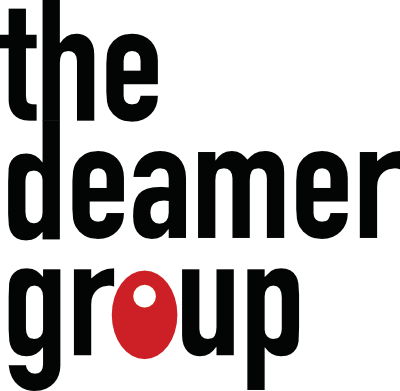It’s a candidate-driven market, and top talent understandably expects competitive salary and benefits packages.
In a time when there are more job vacancies than people to fill them, many companies are reconsidering what makes their firm attractive to job seekers as well as what makes their current staff want to stay when frequent job-hopping is common and simple boredom is a (perhaps surprising for HR) fact of the employment lifespan.
With the high cost of bad hires well-documented and the pressure this puts on a company’s time and resources, retention is like a Jeopardy answer with a litany of questions (What is meaningful work? What is a higher salary?) that must all be puzzle-pieced together.
How much does salary matter to workers?
Money certainly does matter, but the real question is, “How much?”
Approximately 80% of workers are currently facing financial worries, according to the inaugural Pay Experience Report. To put this considerable amount of stress into context, U.S. Census Bureau data shows that “the median retirement account balance among all working individuals is $0.00.”
Employees also have a growing interest in both pay transparency and equity. For example, 51% of female workers listed “not making a good salary” as the leading factor for dissatisfaction with their employer, versus 35% of men–and new research finds that racial and gender-based wage disparities have worsened going into 2019. More fundamentally important, however, is the basic need for employees to pay their bills.
Benefits Packages
Offered alongside salary, benefits like employer-sponsored health plans, paid leave and flexible work options all increase a company’s attractiveness to potential candidates and are shown to variously improve retention among workers because of inherent financial benefits:
-
- Access to health insurance is vitally important for American workers, and employer-sponsored plans give them a sense of security. Although 71% worry healthcare costs will continue to rise, 46% say their health plan was either a deciding factor or positive influence on their decision to accept their current job–and 56% said their health plan is the reason they’ve stayed at their current job.
- Meanwhile, paid leave benefits improve retention as well as company image among women of all ethnicities and age groups, including those who aren’t planning to have children. When parental leave is freely extended to new fathers, companies like EY have experienced a significant reduction in female turnover.
- Now that flexible work options are becoming status quo, this has been shown to improve employee engagement and job satisfaction both among hourly and non-hourly workers.
Meaningful Work
As a concept, meaningful work is the idea that employees inherently derive job satisfaction from knowing that their work has a larger purpose, whether in their own lives (via benefits like paid parental leave and opportunities for career growth) or in the lives of others. Interestingly, HR tech company Hibob found that salary appears to matter less than culture to a majority of job seekers (69%) who will reject a job offer if they learn that a company’s employees are “overworked, burned-out and generally dissatisfied.”
Salary: your ace in the hole
According to a new Glassdoor study, however, money remains the number-one motivator for 67% of job seekers and employees looking elsewhere for career opportunities. Millennial and Gen Z job seekers in particular have changed how employers see job-hopping, making it more acceptable; however, it’s clear that salary plays a large role in why job-hopping occurs (see this Forbes advice column entitled, “Yes, You Do Have to Change Jobs to Get Paid What You’re Worth”).
HR Dive sums it up well:
Compensation continues to be a top motivator for applicants, although studies are increasingly finding that workers will take a pay cut for more meaningful work or better benefits. But because findings vary, it may be wise for talent professionals to consider all factors when creating a strategic total rewards plan.
When and why should you increase your salary offers?
When it comes to salary, upskilling, or even boredom, a certain amount of turnover cannot be avoided. But higher salaries are certainly likely to attract a candidate away from your competitors or satisfy a current employee from straying.
Based on industry trends
Employer changes depend largely on what industry guru Josh Bersin calls “an increasingly wide gap between the jobs being created and the skills and experiences in the workforce to fill them.” While some companies plan to keep wage increases around a 3% average by offering personalized benefits and bonuses due to high healthcare costs, industries like digital marketing have seen high upward trends with salaries increasing 10-40% depending on experience.
You may consider offering a fair and equitable salary range while being clear on where a prospective hire falls. This is one of the innovative steps Starbucks has taken towards achieving 100% pay equity. When recruiters are aligned with this strategy, it can also give hires a sense of future increases and thus something to work towards.
When you might price yourself out of competition
Roy Maurer at SHRM agrees that salary is the most important part of a job ad. Why?
Putting salary ranges in job advertisements may give employers a competitive advantage when trying to attract candidates. That’s because most job seekers look first at a position’s compensation and benefits when scanning a job posting, then at the job’s required qualifications and duties, according to new research from LinkedIn.
The professional networking site asked 450 users to look over an example job advertisement and then generated a heat map based on what captivated them. Not surprisingly, pay and benefits information immediately attracted a majority of the respondents.
LinkedIn also found that 70% of professionals want to hear about salary in the first message from a recruiter (!).
Because the benefits outweigh the costs
There are hidden costs to paying employees less money. Skilled employees can cost employers up to 213% of their salary when they leave, and it costs money to hire, onboard, and train a replacement.
According to Inc consultant John Boitnott, although “increasing employee salaries can feel painful at first[, over time] it may not only improve company culture and happiness but also save you money. Eight all-star employees receiving $100,000 a year will cost you less than 12 average employees making $70,000.”
Here’s the biggest reason to raise salary offers
Paying workers a fair wage is part of the needs of the market as well as the larger conversation regarding work-life balance. After all, the true strength of your company lies with your employees.
Employees who can fully focus their attention on work rather than ailing finances will show you a high level of output, and you will need fewer workers to accomplish necessary tasks. Not only can higher compensation improve retention among the best talent, it will improve your company’s word-of-mouth recruiting when it comes time to expand.

